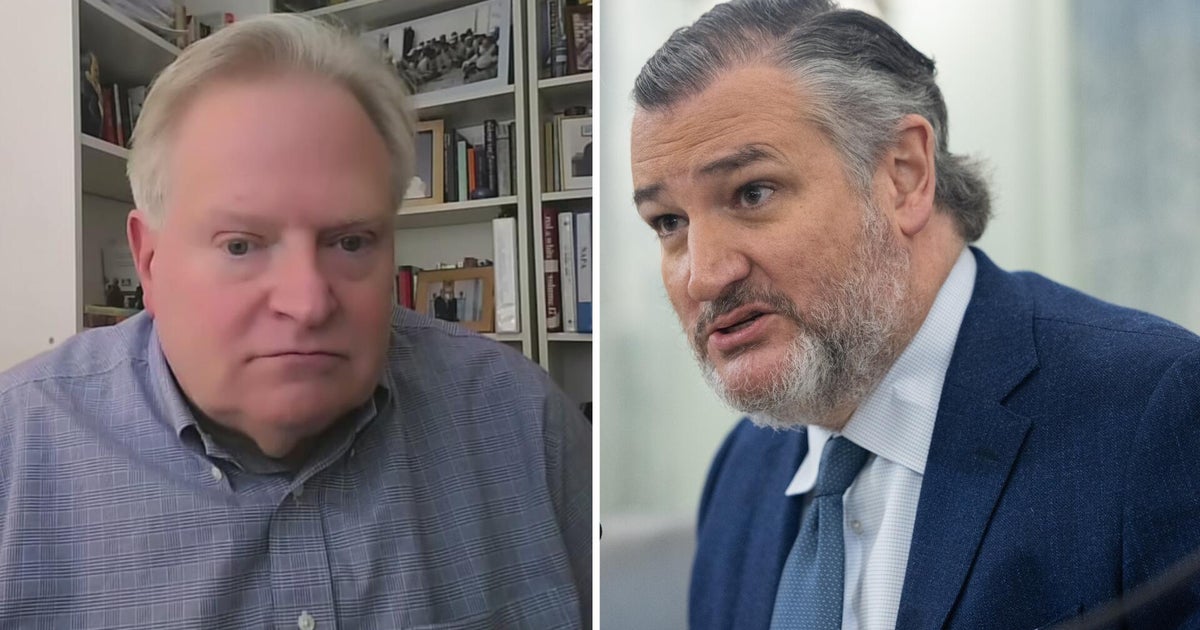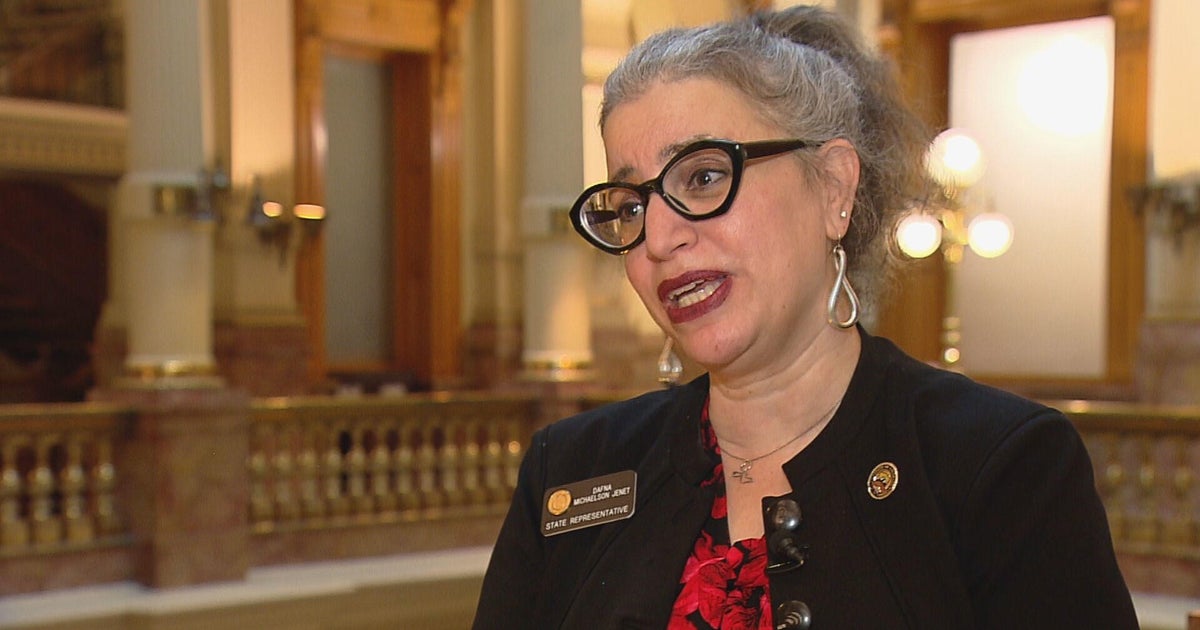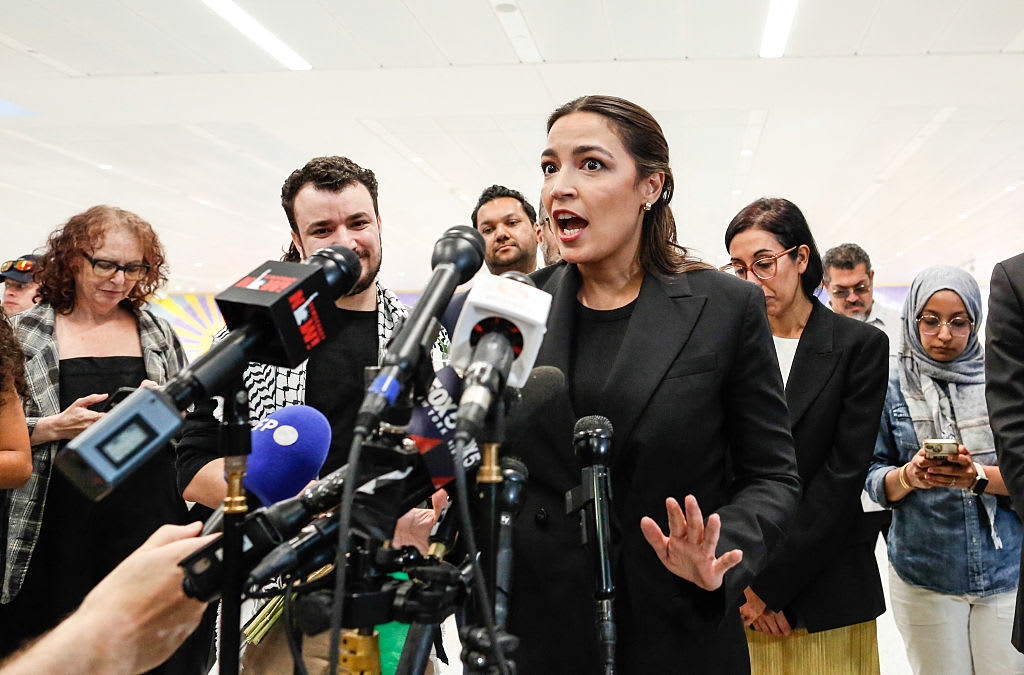Transcript: Sen. Roy Blunt on "Face the Nation," February 24, 2019
The following is a transcript of the interview with Republican Sen. Roy Blunt of Missouri that aired Sunday, Feb. 24, 2019, on "Face the Nation."
MARGARET BRENNAN: We begin with Missouri Republican Senator Roy Blunt who sits on the Intelligence Committee which has been conducting their own investigation into Russian meddling in the 2016 campaign. It certainly feels extraordinary, senator, in terms of the time we are in. But you heard Steve Bannon there say that he thinks the meat of this Mueller report is going to be about obstruction of justice. Have you felt any pressure from the president when it comes to the Senate investigation?
SENATOR ROY BLUNT: I have not. And actually because we have been involved in the investigation now for almost two years, I think we've- most of the members on the Intelligence Committee have been very thoughtful in the way they approach both the President and the administration on this issue. I think the pressure from the president is the same pressure we all feel which is let's get this over with. It would have been the reason not to slow down the investigation as Mr. Bannon said to change the leaders.
But at the same time when you look at how Director Comey had handled things the previous year with the Clinton investigation, the determination- I'm going to say that she did a lot of bad things but none of them are worthy of indictment. One of those two things was a mistake but probably the biggest mistake was not reporting directly to the attorney general rather than to take this new obligation on himself to decide what was right and what was wrong. So I understand that.
But I've always been of the view that anything that slows down the investigation is not a good thing, that we need to get the facts out there, get this behind us in a way that people thought that anybody that should have been talked to was talked to any question that should have been asked, was asked. And we've been trying to do that in the Senate committee I think in a very appropriate way. And remember Cohen who'll be testifying both to our committee--
MARGARET BRENNAN: That's right.
SEN. BLUNT: --privately and the House I think publicly next week.
MARGARET BRENNAN: He's the president's long term attorney.
SEN. BLUNT: One of the charges against him was lying to Senate investigators when he was asked questions and that's totally unacceptable.
MARGARET BRENNAN: So he lied last time to Congress. He's admitted to that. Why are you having him back and why do you believe him this time?
SEN. BLUNT: Well I don't know that we believe him this time we'll just have to see. I think the reason you have him back is when somebody lies to Congress in an investigation like this, the questions you might have asked the next- next witness don't get to ask. Somebody you might have called doesn't get called. It- it- it's serious well beyond whatever Cohen might have said and that you misdirect the investigation. That's why it's so important that those kinds of charges be taken very seriously and obviously they are and he's going to go to jail because of it.
MARGARET BRENNAN: Do you have any concerns that your investigation is too narrow? I mean Michael Cohen is now working with Manhattan prosecutors on some alleged financial crimes and questions about inaugural committee which as you heard Steve Bannon says is the bigger issue he thinks.
SEN. BLUNT: Well I think- I think, Margaret the problem with all these investigations which is why we don't do that totally independent special counsel anymore- Democrats and Republicans let that lapse- is not that they're too narrow, but they get too broad. I'm- I'm not sure that George Washington's expense account could stand up against the entire force of the federal government if you looked at everything related to everything as opposed to really focusing on what was supposed to be the charge here which is collusion.
Our chairman, Chairman Burr, said two or three weeks ago that we have so far found no evidence of collusion and you can see everybody backpedaling now - House and Senate - both on the idea that collusion is going to be in the report. They want to come up with lots of other things that I think are going to be much more arguable than a pure finding of collusion would have been because I don't think that's there--
MARGARET BRENNAN: And that was in an interview with CBS NEWS and it was- the- the comment from Senator Burr was if it was written now, there was no evidence of collusion but as you say--
SEN. BLUNT: Right.
MARGARET BRENNAN: --your committee is still investigating.
SEN. BLUNT: We- we are still and- and you know we'd like to have frankly a little more access to the Mueller investigation before we come to a final conclusion. His report will help us write our final report. We've given Mueller full access to all of our interviews all of our investigation. We haven't had that reciprocated and so we'll soon find out what else is out there that we might not know about.
MARGARET BRENNAN: Well on that report the House Intel Chairman Adam Schiff told ABC this morning that Democrats are going to subpoena that Mueller report if it is not made public and to expect that the special counsel will be called to testify. Should we expect him to testify in front of the Senate and- and- can you actually enforce a subpoena to get the Justice Department to do something that they refused to do in the first place?
SEN. BLUNT: I don't know that you can. And you know the- the new Attorney General Bill Barr was very specific on this when I ask during his confirmation what should happen, what should be released, what shouldn't be released, should you released things you find out that don't lead to an indictment or might not lead to an indictment in the future, should you release things that people did that are merely embarrassing? You know again, the weight of the government here is very strong. And people need to think about that when they begin to demand. We need to know whatever you found out whether it led anywhere or not.
MARGARET BRENNAN: And we should expect Mueller to testify before your committee? In public?
SEN. BLUNT: I- I think we'll have to wait and see what's in the report.
MARGARET BRENNAN: I want to also ask you about this declaration and the national emergency that the president made.
SEN. BLUNT: Right.
MARGARET BRENNAN: Do you think Republican leadership will, in the Senate, will allow for a vote on a resolution to try to block the emergency declaration? We know the House is moving forward--
SEN. BLUNT: Right.
MARGARET BRENNAN: --with one.
SEN. BLUNT: I don't think we have a choice. I think the way that '74 law was written, the House has a vote, then we have to have a vote. It's a privileged motion if it's written correctly and I don't have any reason to believe they won't write it--
MARGARET BRENNAN: How will you vote?
SEN. BLUNT: --correctly. I- I don't know yet. I don't know yet. I don't like the process. I don't think that the emergency declaration law was written to deal with things that the president asked the Congress to do and then the Congress didn't do. It's never been used that way before. I want to look carefully at the law. I want to hear what the president's lawyers have to say about it. I- I really think the president would have been better served by one, taking the money that he- he got in the bill he signed, two, using the transfer authority he had. And I am absolutely confident that those two amounts of money would be more money than could be spent between now and September the 30th. I- I think--
MARGARET BRENNAN: That's practically--
SEN. BLUNT: --I think it's an unfortunate decision.
MARGARET BRENNAN: --that's practically speaking. But in terms of clarifying what you just said, are you saying it is possible that what the president declared is unconstitutional?
SEN. BLUNT: No, no.
MARGARET BRENNAN: You believe he has full authorities to do this--
SEN. BLUNT: Well I don't know that.
MARGARET BRENNAN: --to- to bypass the power of the purse strings with Congress to achieve a policy outcome that Congress refused to deliver on.
SEN. BLUNT: No, I think there is a likelihood that he is within the law that Congress passed. But, you know that was long before I got to the Congress. I haven't. No- no president has used that law this way before. And I- I think we're gonna have to evaluate whether this is really the intention of an emergency. Is it really an emergency if again the president asked the Congress to do it and they failed to? That's different than the way this law has been used in the past.
MARGARET BRENNAN: So you could vote to try to block the president from moving forward with this emergency? You just haven't decided yet. Is that fair?
SEN. BLUNT: I think that's fair. I think that's fair, it's also fair to understand that the president says he'll veto whatever--
MARGARET BRENNAN: Right.
SEN. BLUNT: --passes the House and Senate. And so this will be decided in the courts. I think it's highly unlikely that the veto would be overridden in the House and probably not overridden in the Senate, either one. And so it's gonna be decided in the courts. And it's- I think it's a fairly- it's a significant court decision.
MARGARET BRENNAN: Senator, thank you very much.
SEN. BLUNT: By the way let me say on this, I do agree with what the president is trying to do here. I just think there is a more likely way to get it done.



